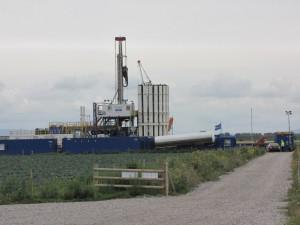 If at any point it seemed like natural gas companies and environmental groups would team up against the coal industry, it doesn’t anymore. As the Washington Post reported Monday, those “new friendships grew old, then cold.” In a matter of just a few years, environmental leaders have cut ties with natural gas companies as they have grown increasingly concerned with their drilling methods.
If at any point it seemed like natural gas companies and environmental groups would team up against the coal industry, it doesn’t anymore. As the Washington Post reported Monday, those “new friendships grew old, then cold.” In a matter of just a few years, environmental leaders have cut ties with natural gas companies as they have grown increasingly concerned with their drilling methods.
As we have written in previous posts, hydraulic fracturing, or “fracking,” is a process use to extract natural gas from shale rock formations (read more about it here). While this technique has lead to a boom in natural gas production, the quantity and type of chemicals used in the process have forced many environmental groups to reassess their already tenuous relationship with the industry.
The Sierra Club is the most eye-opening example. After accepting over $26 million in contributions from Chesapeake Energy’s chief executive officer and affiliated companies between 2007 and 2010, the organization turned down an additional $30 million last year. In an interview cited by the Washington Post, Chesapeake Energy CEO Aubry McClendon said, “Identifying a common area of interest is very different from having our financial health dependent on a particular industry, or particular company.” In another instance, the Natural Resources Defense Council (NRDC) was contacted in 2008 by McClendon, but after serious talks the group declined both a corporate and personal contribution to its “Move America Beyond Coal” campaign. Read about more cases here.
But what helped form these alliances in the first place? Deborah Gordon, a senior associate in the Carnegie Endowment for International Peace, says that much of the reason was due to the fact that natural gas was seen by many as the “anti-coal” during cap-and-trade legislation. In 2009 and 2010, “it made sense that environmentalists viewed the natural gas industry as an ally when they were trying to forge a climate deal on Capitol Hill [...but now] it’s just exploded.”

